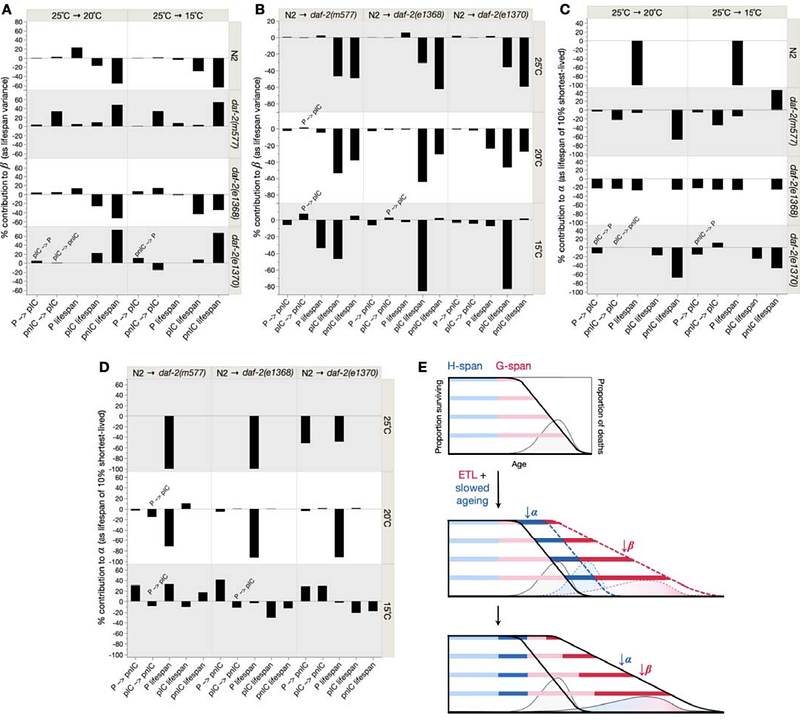Slow Gompertzian aging in long-lived C. elegans results from expansion of decrepitude, not decelerated aging

Slow Gompertzian aging in long-lived C. elegans results from expansion of decrepitude, not decelerated aging
Zhang, B.; Gems, D.
AbstractThe Gompertz equation describes exponential age-increases in animal mortality rate arising from biological aging. Its parameters, and {beta}, are widely used to evaluate lifespan-extending interventions and human mortality patterns: it is assumed that reduction in {beta} corresponds to deceleration of aging rate, and reduction in to reduced aging-independent mortality. However, this view has never been empirically validated. We therefore investigated the biological basis of and {beta}, by simultaneous quantification of mortality and age-related health in long-lived populations of the nematode Caenorhabditis elegans. We show that {beta} reduction arises not from decelerated aging but expansion of decrepitude in longer-lived individuals, whereas reduction arises from decelerated aging. This empirical re-evaluation of Gompertzian aging inverts and challenges long-standing ideas in the biodemography of aging.